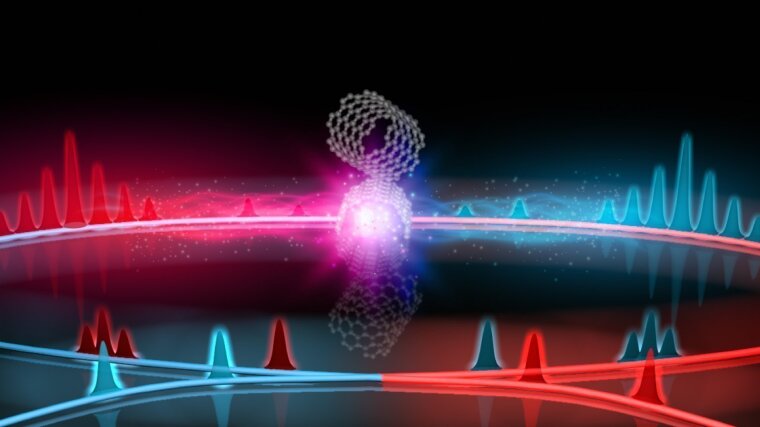
This project aims to formulate problems in photonics as quantum algorithms in the established framework of qubits and fundamental gates. Such problems are all based on the interference of waves and hence appear to be a natural candidate for efficient formulation on quantum computation hardware, which utilize interference as their very computational principle. Hence, we aim to not just implement wave propagtion problems in quantum computers but attempt to make use of exponential scaling potential inherent in them.
Within the project we first start with the development of algorithms for non-quantized wave propagation. These algorithms are very well-understood and the notion of symmetries is very well-established in these. It is in general such symmetries, which are a key in finding an efficient formulation in terms of quantum gates. A key part of the research is the implementation and comparison of differential operators and fourier-based implementations and the implementation of matter, the ability create arbitrary material distributions, the notion of dispersion and the simulated implementation of loss.
Moreover, we shall use the results obtained in this direction to investigate efficient initial value creation strategies, meaningful observables and attempt to demonstrate implementations on real quantum compute hardware.
The inability of quantum algorithms to behave nonlinearily will, however, limit these classes of algorithms to linear wave phenomena (with possible extensions to the crucial cases of pump-nondepletion and SPDC). The implementation of true nonlinearities will require the formulation of fully quantized electromagnetic fields. While conceptually much more difficult it is also a very rewarding goal, because it is exactly here, where classical computer struggle and the exponential gain is required to make progress. We hence will also investigate this case.